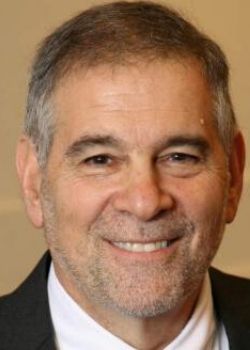Perhaps it is a hangover from Passover but as we observe this Yom Hashoah I find myself asking, “why is this Yom Hashoah different from all others?
As in the Haggadah, let’s deepen the question.
On most other years, the shadow of genocide did not loom so large, on this year, it looms very large in the deeds of President Putin and of the Russian Army, in the killing fields of Ukraine and in the mouth of President Biden.
On all other years, we worried that the Holocaust might not be remembered, its victims forgotten, on this Yom Hashoah we fear that the Holocaust is being invoked too often, too foolishly in such a way that it diminishes the catastrophe, falsifies the memory.
On all other nights we never imagined the brazenness of those who would like to complete the Holocaust in our own country; this year we have seen “6MWE” shirts on the internet –Six Million Wasn’t Enough or Auschwitz Staff Member worn proudly in the offices of the Capitol overtaken by insurrectionists.
On all other nights we feared that certain countries would never confront their nation’s participation in perpetrating the crime, this year we see an active campaign to literally rewrite the history, casting all blame on the Germans, absolving their own nation of its active participation.
So we must tell the story again, from the beginning.
So this year as we sit together to remember, we must ask:
What was unique about the Jewish fate?
- The scope of the German determination to kill the Jews: The Germans sought to murder all Jews everywhere: men, women, and children. 11 million Jews were targeted for murder at the Wannsee Conference on January 20, 1942.
- Previous antisemitism had varied by source, whether religious, nationalist, economic or political, to which the Nazis added racism, what Timothy Snyder calls “zoological.” Saul Friedlander described Nazi antisemitism as “redemptive”—the murder of the Jews was essential to the national salvation of the German people. Jews were considered a cancer on the very body of the Master Race and their elimination was urgent and indispensable for German survival and domination.
- Antisemitism varies according to level of preoccupation, how endangered a society feels, how important antisemitism is to the antisemites. For Hitler and the Nazis, it was all important from his inception as a Nazi leader to his final will and testament to the German people.
- Antisemitism varies according to goal: conversion was important when religion was the primary source of antisemitism. Exclusion is critical when the source of antisemitism is social, expulsion if its source is political, and finally for the Nazis, “extermination” eliminated a racial threat.
- The Nazi efforts to eliminate the Jews was relentless, even to the detriment of World War II: The Germans fought two wars, a military war and a racial war. Priority was often given to the racial war. In 1942 and 1944, key moments of German military peril were pivotal in the deportation of Jews to death camps. Mein Kampf, Hitler’s 1925 manifesto, articulates two goals: German expansionism, colonialism within Europe, German racial domination—and the elimination of the Jews.
- The instrumentalities employed included death camps where systematic murder took on a factory-like, assembly line process. Charles Darwin’s Survival of the Fittest was joined with Henry Ford’s assembly line to create factories of murder that killed the victims and recycled their remains.
- The Holocaust involved two of the great monotheistic religions. Generally speaking the more devout a Christian nation, the greater the number of Jews who were murdered in that land. The President of Slovakia was a Priest who paid the Germans to deport and murder its Jews, the Bishop of Denmark condemned antisemitism and 90% of its Jews were saved, no such words were heard from the Cardinal of Warsaw and 90% of its Jews were killed.
Many call the Holocaust unimaginable, which it once was, but no longer. Humanity is today capable of even greater evil. Unless we understand the restraints that are needed, the solidarity that is required unless we value the sanctity of each human life unless we celebrate the diversity of all creation.
The Holocaust is not merely an event in the past; it is a warning to the future.

